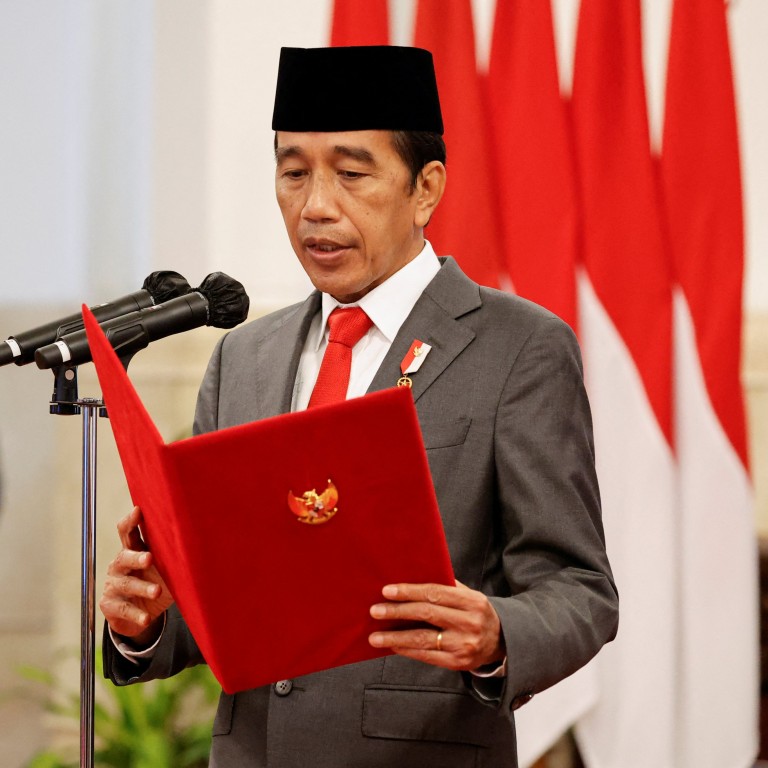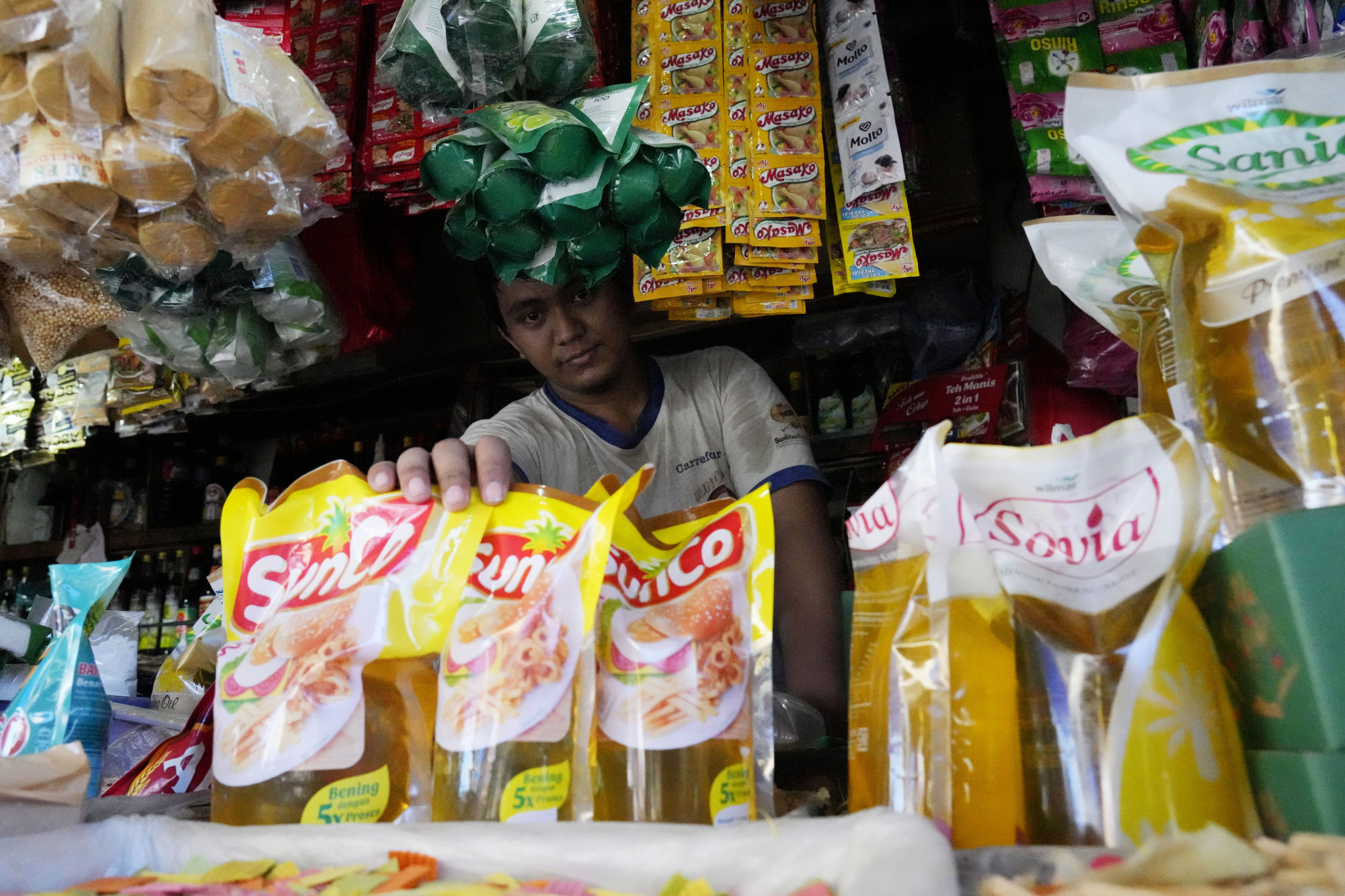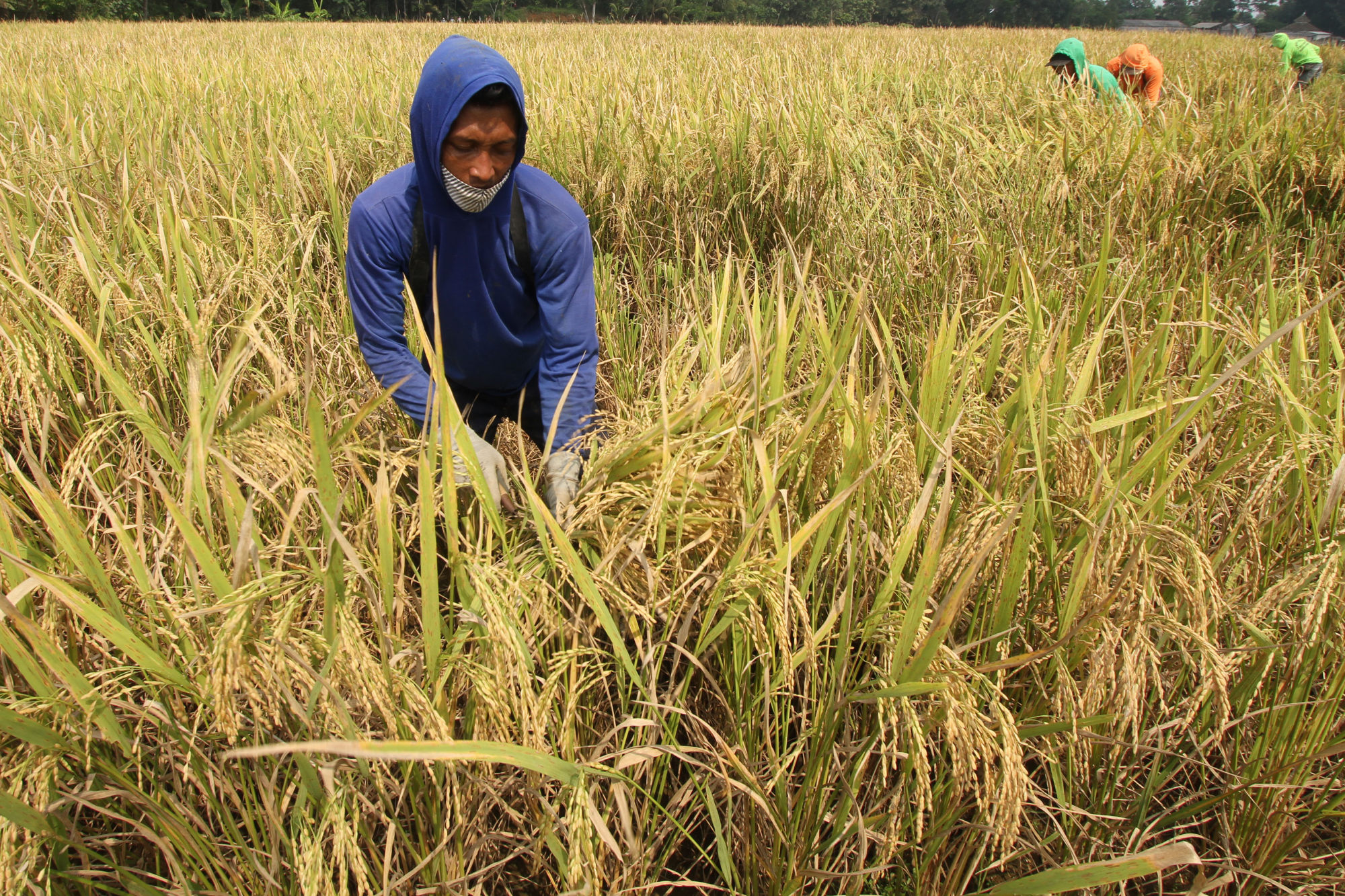
Indonesia’s Joko Widodo hints at how he wants to be remembered: through his budgets and Nusantara spending plan
- He is likely to hand over the US$32.5 billion Nusantara capital project to his preferred successor Ganjar Pranowo, currently governor of Central Java
- Jokowi has used the rising cost of living to justify increased social spending, hoping to boost Pranowo’s chances of winning the presidency
Within this backdrop, Widodo – more commonly known as Jokowi – is insistent on cementing his presidential legacy by finishing the groundwork for the new capital of Nusantara in East Kalimantan.
Seen in the context of rising cost of living and inflation, this legacy project that some critics have called “vain” could be derailed as the administration focuses on social issues pertaining to the rising cost of living.

In this regard, Jokowi has been seen as being adamant to set the stage for his most favoured candidate, Ganjar Pranowo, to continue his Nusantara capital legacy.
An analysis of past and present national budgets and the expenditure plans for the Nusantara projects offers significant insights on how Jokowi is planning to preserve and continue his legacy.
Jokowi is making full use of the rising cost of living in Indonesia to cement his legacy through the Nusantara project. The current economic climate might provide a justification for him to raise social spending leading up to the 2024 presidential election, like he did during the 2019 elections.
The difference is that in the upcoming elections, at face value, there is no personal political gain for Jokowi by enacting such measures as he cannot be re-elected. Nonetheless, the consensus view is that the 2024 election remains high on the president’s priority list as he hopes to set up Pranowo as his successor.
Will Indonesia’s Jokowi start his own political party to cement his legacy?
Ahead of the 2019 presidential polls, that year’s budget – tabled in August of 2018 – was characterised by commentators as being “populist”.
When compared to the preceding year’s spending plan, the 2019 budget did indeed have all the ingredients of a populist budget. For example, the social protection budget increased by 32.75 per cent from 2018. By appealing to lower-income groups in Indonesia, Jokowi managed to secure a second term as president.
Pranowo, one of Indonesia’s emerging leaders, is serving as governor of Central Java from 2018-2023, which makes him a very likely presidential candidate for 2024.
Jokowi has thus far signalled his support for Pranowo as his choice for his successor, which gives Pranowo an advantage over other candidates.
Similar to Jokowi’s introduction of the Jakarta health card, or Kartu Jakarta Sehat, to provide affordable healthcare for the poor when he was governor of Jakarta, Pranowo introduced the farmers card to resolve issues that farmers face, such as price, quality and distribution of fertilisers. This makes him a very likely candidate to receive support from the political voting base of Jokowi especially in Central Java.

Data from Indonesia’s finance ministry show that social spending in Indonesia has increased the total national budget by 1 per cent from 2019 to 2022, from 107 trillion rupiah (US$7.14 billion) in 2019 to 147 trillion rupiah in 2022. This is further evidenced in Jokowi using the rising cost of living as justification to increase social assistance, in his plan of ensuring Pranowo becomes his successor.
The cost of building the new capital of Nusantara, according to Jokowi, will be US$32.5 billion. The national budget will pay a maximum of 20 per cent and the rest will be covered by private and public investments and state-owned companies.
The entire project will take 15-20 years to complete. This means that Jokowi would want to not only finish its groundwork but also ensure the continuity of this project by securing a presidential candidate in 2024 who will continue this monumental project.
‘Hard to see the idea’: Indonesia names new US$34b capital ‘Nusantara’
The Nusantara budget and the national budgets are evidence that Jokowi has intended them to be a firm foundation to cement and continue his legacy. Social spending in 2023 is expected to increase against the backdrop of inflation and higher cost of living worldwide with no permanent solution in sight.
Hence, it is likely that Jokowi will cement his legacy for many years to come. Of course, one crucial component of his legacy is Pranowo’s ascendancy to the presidency – and that is an outcome that has yet to materialise.


